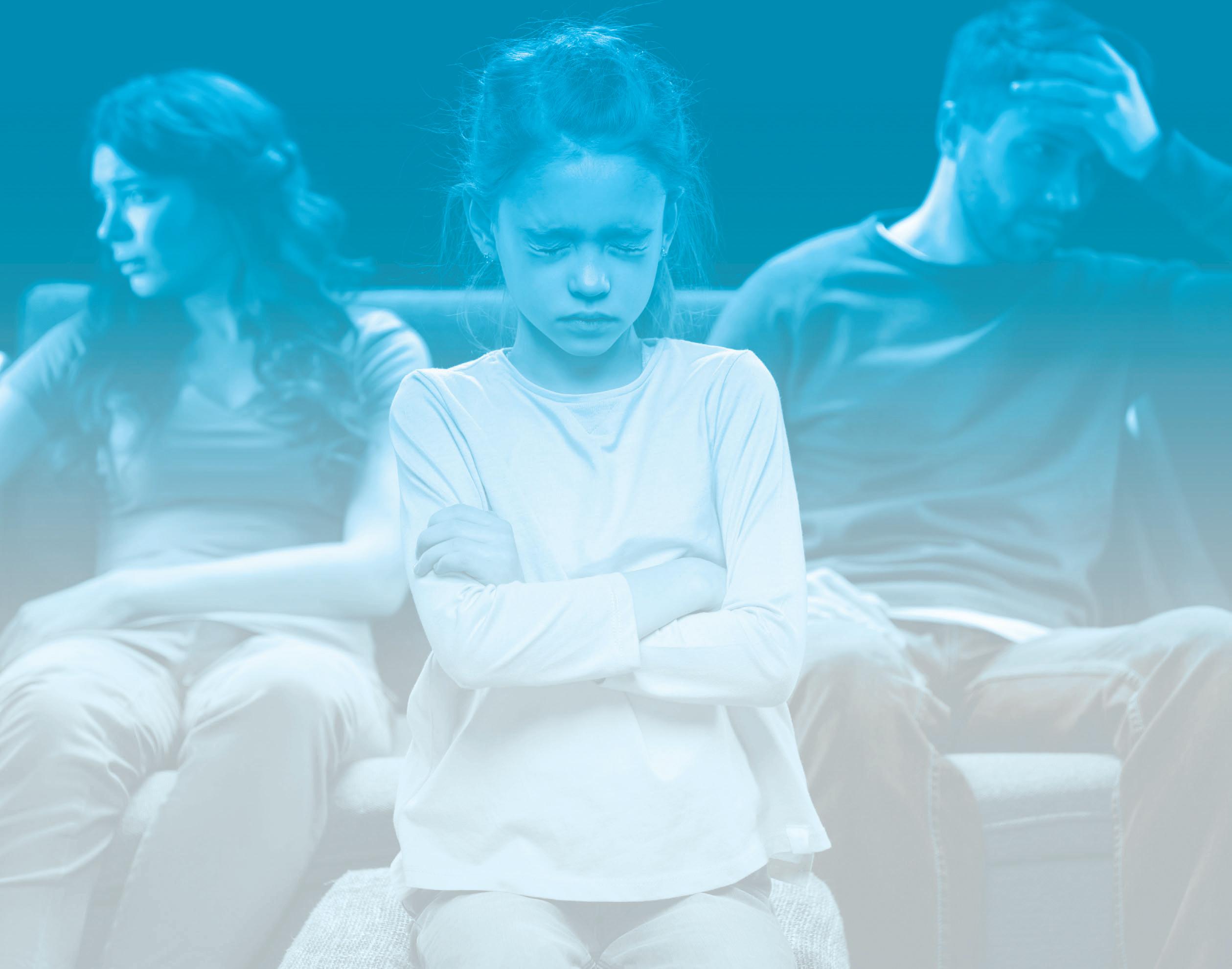
2 minute read
Caring for Kids in Crisis: Children and
While we would want the world to exist without divorce, we know that is not the reality. Statistically, two out of fve children live in a home composed of something else other than married biological parents.1 These statistics tell us that our church is not immune to divorce, and we need to educate and help the children.
First, we need to know how it impacts our children. Effects may vary with each child, but some of the most common experiences are confusion, sadness, denial, insecurity, stress, anger, and a sense of living in two worlds, among other things. As a church, we are going to see these arrays of symptoms emerge. The frst thing we need to do is create a safe place for them to be open about their thoughts and feelings. If they see the church as a place where they are heard and cared for, they will feel comfortable talking about it. How do we create such an environment? We must be honest, nonjudgmental, and loving.
In many cases, we will have children who visit us only at alternate times of ministry such as weekdays and Sundays. This means they might feel left out because they are not present consistently. We need to do our part to help children feel less left out, incorporating ways for them to be a part of the church when they are with us. At times, this may not be easy, but think of outside-of-the-box ideas to include them, such as having them record a small video for the activity (that way, even if they are not present, they can be a part of the service) and sending them what was discussed during Sunday class as homework so when they come back, they will be up to speed. These are just a few ideas we can implement; the important thing is to be aware of them and help them feel that they are not missing out.
We cannot discuss children and divorce without addressing parents. If you do not retain anything else, please remember this: children are not responsible for their parents’ divorce. The goal is for one parent to try to maintain a civilized, mature relationship with the other parent for the child’s sake. It is our job to give them the best possible environment we can. Here is an excellent “do and don’t” list that can be the start of a healthy way of helping kids deal with divorce.2
Do
• Make sure kids know they are loved by both parents.
• Encourage extended family and friend relationships on both sides of the family.
• Provide consistent rules/expectations to maintain security for the children.
• Give parents and children time to heal; divorce is hard and can be a lengthy process.
• Determine that children are more important than battling adult issues and that their needs come frst.
Don’t
• Don’t speak poorly about one parent in particular; it hurts kids.
• Don’t use children as messengers or spies relaying information.
• Don’t talk about “good parenting/bad parenting” in front of children.
• Don’t make children have to choose, defend, or stand up for a parent.
• Don’t discuss adult issues with kids (like child support, debt, relationships, or affairs).
• Don’t make a child feel guilty when they are with the other parent.
• Don’t try to “buy” kids’ affection; they need you and stability, not stuff.
• Don’t make promises you can’t keep.
References
1. Family structure and children’s living arrangements: Detailed living arrangements of children by gender, race, and Hispanic origin, age, parent’s education, and poverty status, 2019, from U.S. Census Bureau, Current Population Survey, Annual Social and Economic Supplement. http://www.childstats.gov/americaschildren/tables/fam1b.asp
2. Tips to minimize the effects of divorce on kids. Church Initiative. https:// www.dc4k.org/parentzone.

— Eliette Vrenelli Garcia Carolina, Puerto Rico










